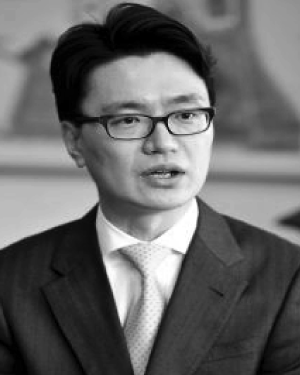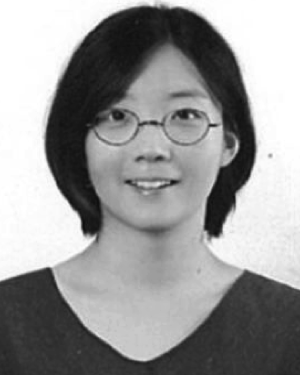The process of identifying innovative opportunities to improve team performance based on online fan comments.
Abstract:
The advent of social media has allowed channeling of the voice of sports fans that have essentially lead to gathering and storing fan-generated, large-scale opinions abou...Show MoreMetadata
Abstract:
The advent of social media has allowed channeling of the voice of sports fans that have essentially lead to gathering and storing fan-generated, large-scale opinions about sports match and team performance. Although research utilizing social media data for the purposes of supporting consumer market research has been increasing throughout the recent decade, there is a lack of studies using social media mining approach to improve team performance. In this paper, an opportunity mining approach is proposed to identify opportunities to improve team performance based on text mining and cluster analysis. A case study of the 2018 Fédération Internationale de Football Association (FIFA) World Cup final qualification of Korea, Korea versus Uzbekistan, was conducted to explain how the proposed method works. Fan comment data collected in the study revealed 16 different opportunities that would satisfy fans with regard to the team performance, and of those, two main extreme opportunities were identified.
The process of identifying innovative opportunities to improve team performance based on online fan comments.
Published in: IEEE Access ( Volume: 7)
Funding Agency:

Department of Creative IT Engineering, Pohang University of Science and Technology (POSTECH), Pohang, South Korea
Young-Seok Kim (M’16) received the Ph.D. degree in sports science from Seoul National University, Seoul, South Korea, in 2014. He is currently the Director of the Korea Sport Industry Development Institute, POSTECH. For ten years of his professional career, he not only developed broad understanding of global sport industry but also collaborated with various industry stakeholders and demonstrated his leadership by working ...Show More
Young-Seok Kim (M’16) received the Ph.D. degree in sports science from Seoul National University, Seoul, South Korea, in 2014. He is currently the Director of the Korea Sport Industry Development Institute, POSTECH. For ten years of his professional career, he not only developed broad understanding of global sport industry but also collaborated with various industry stakeholders and demonstrated his leadership by working ...View more

Korea Sport Industry Development Institute (KSIDI), Pohang University of Science and Technology (POSTECH), Pohang, South Korea
Mijung Kim (M’16) received the Ph.D. degree in telecommunication, information studies and media from Michigan State University, East Lansing, USA, in 2014. She is currently a Senior Research Associate with the Korea Sport Industry Development Institute, POSTECH. She has been collaborating with great engineering scholars to address interactive technology in sports at POSTECH, since 2015. Specifically, her team’s research a...Show More
Mijung Kim (M’16) received the Ph.D. degree in telecommunication, information studies and media from Michigan State University, East Lansing, USA, in 2014. She is currently a Senior Research Associate with the Korea Sport Industry Development Institute, POSTECH. She has been collaborating with great engineering scholars to address interactive technology in sports at POSTECH, since 2015. Specifically, her team’s research a...View more

Department of Creative IT Engineering, Pohang University of Science and Technology (POSTECH), Pohang, South Korea
Young-Seok Kim (M’16) received the Ph.D. degree in sports science from Seoul National University, Seoul, South Korea, in 2014. He is currently the Director of the Korea Sport Industry Development Institute, POSTECH. For ten years of his professional career, he not only developed broad understanding of global sport industry but also collaborated with various industry stakeholders and demonstrated his leadership by working with the International Olympic Committee (IOC) and the Fédération Internationale de Football Association (FIFA). Corresponding to the innovative government policy of sport industry, he discovered a valuable vision and future of sports IT convergence and has joined one of the leading engineering schools, POSTECH, to pursue interdisciplinary research. His research interests include sports engineering, human–computer interface/interaction (HCI), sports, and sports science and technology. He is currently a Member of the Editorial Board of the Journal of Global Sports Management and the Chair of the Sports IT Convergence Division in the Korean Society for Sports Management. He was a recipient of the Achievement Award for Dedication to the Development for Sport IT Industry, Minister of Culture, Sports and Tourism, South Korea, in 2017.
Young-Seok Kim (M’16) received the Ph.D. degree in sports science from Seoul National University, Seoul, South Korea, in 2014. He is currently the Director of the Korea Sport Industry Development Institute, POSTECH. For ten years of his professional career, he not only developed broad understanding of global sport industry but also collaborated with various industry stakeholders and demonstrated his leadership by working with the International Olympic Committee (IOC) and the Fédération Internationale de Football Association (FIFA). Corresponding to the innovative government policy of sport industry, he discovered a valuable vision and future of sports IT convergence and has joined one of the leading engineering schools, POSTECH, to pursue interdisciplinary research. His research interests include sports engineering, human–computer interface/interaction (HCI), sports, and sports science and technology. He is currently a Member of the Editorial Board of the Journal of Global Sports Management and the Chair of the Sports IT Convergence Division in the Korean Society for Sports Management. He was a recipient of the Achievement Award for Dedication to the Development for Sport IT Industry, Minister of Culture, Sports and Tourism, South Korea, in 2017.View more

Korea Sport Industry Development Institute (KSIDI), Pohang University of Science and Technology (POSTECH), Pohang, South Korea
Mijung Kim (M’16) received the Ph.D. degree in telecommunication, information studies and media from Michigan State University, East Lansing, USA, in 2014. She is currently a Senior Research Associate with the Korea Sport Industry Development Institute, POSTECH. She has been collaborating with great engineering scholars to address interactive technology in sports at POSTECH, since 2015. Specifically, her team’s research aims to explore the technical potential of sensors (e.g., wearable computing) and the use of ICT to motivate people to move or exercise by providing social support or through gamification, and create innovative interaction techniques. Her research interests include social media analysis, media habit formation, and new media effects based on her academic background of social sciences.
Mijung Kim (M’16) received the Ph.D. degree in telecommunication, information studies and media from Michigan State University, East Lansing, USA, in 2014. She is currently a Senior Research Associate with the Korea Sport Industry Development Institute, POSTECH. She has been collaborating with great engineering scholars to address interactive technology in sports at POSTECH, since 2015. Specifically, her team’s research aims to explore the technical potential of sensors (e.g., wearable computing) and the use of ICT to motivate people to move or exercise by providing social support or through gamification, and create innovative interaction techniques. Her research interests include social media analysis, media habit formation, and new media effects based on her academic background of social sciences.View more

